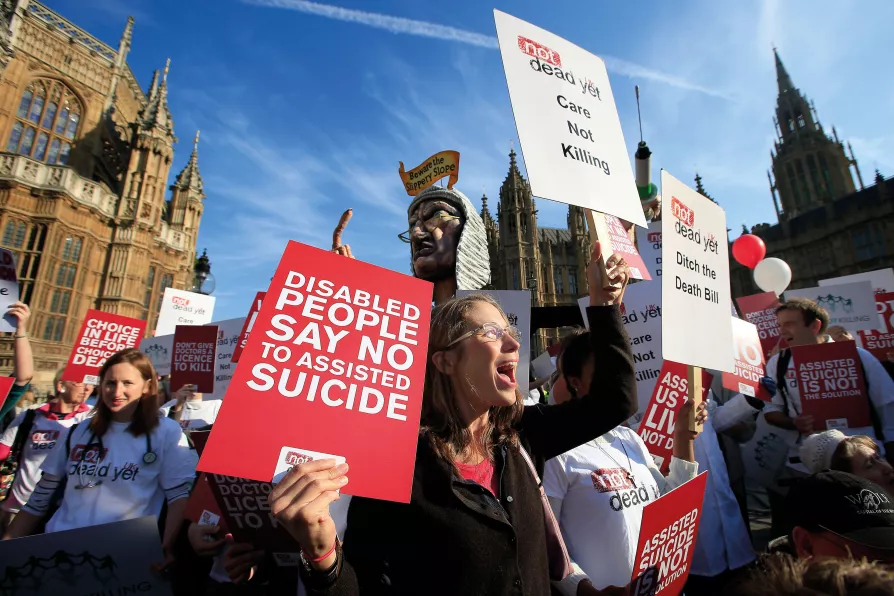This weekend, the NEU holds a special conference to debate changing its approach to organising teaching assistants, which a 2017 TUC agreement forbids. General secretary DANIEL KEBEDE outlines the choices before delegates


DISABLED people are currently engaged in the fight of our lives as we approach the second reading of the Terminally Ill Adults (End of Life) Bill on Friday November 29.
We are exhausted, burned out and triggered. Every day for the past couple of months since Kim Leadbeater won the MPs’ private member’s Bill ballot at the start of October, we have been relentlessly researching, writing and discussing assisted suicides and euthanasia of disabled people.
We have been collating evidence from jurisdictions around the world where it is currently legal and imagining what those laws would look like here in Britain.
It’s a subject which is all too real for us.
Something that characterises the lives of disabled people is illness, pain and early death. Within the disabled people’s movement, something you never get used to is losing so many friends and fellow activists far too soon.
Not because of the impairments or health conditions with which we live. But too often, due to preventable illness, medical neglect, inadequate support or the stress of repeated, hostile assessments.
Researching other jurisdictions brings us face to face with human rights abuses and wasted lives, with disablist attitudes and with assisted suicide as a default solution for inadequate public services and relief of poverty.
The legalisation of assisted suicide is something the disabled people’s movement in Britain has always fought against. No organisation run by and for deaf and disabled people in Britain has ever been in favour.
But we have never been in as much danger as we are with this Bill of the law being changed.
Historically, votes on this subject have always been a matter of free choice for parliamentarians, allowing them to vote with their conscience.
Technically, the vote on Friday is still a free choice. But one questions how free Labour MPs really feel when the Prime Minister’s position on the question has been so overt.
Newly elected, Keir Starmer pledged celebrity mate Esther Rantzen that the law would change.
Starmer’s support for legalisation was clear from before he was ever leader of the Labour Party. As Director of Public Prosecutions, he introduced guidance making it clear that a relative or friend who helps a loved one to die from compassionate motives is unlikely to be prosecuted.
Disabled people always knew we would be facing a strong attempt at legalisation with Starmer as PM, but we never imagined it would come in so quickly and with such speed.
The passage of legislation introduced by Parliament rather than by the government evades the same level of scrutiny. There is less time for debate.

Campaigners vow to keep up fight against Assisted Dying Bill as it clears House of Commons













